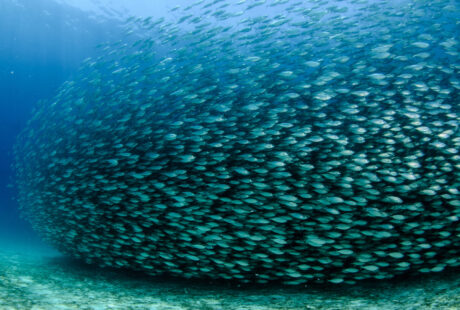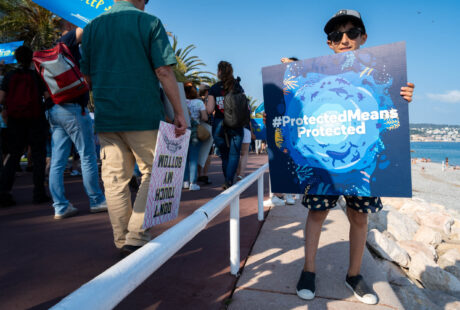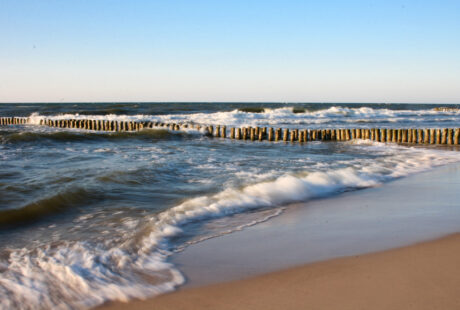Marine life has a key role in countering climate change and in reducing the accumulation of human produced greenhouse gasses in the atmosphere. Preserving and restoring marine ecosystems is not only vital for the health of the ocean but also for the overall stability of the Earth’s climate system.
Each living organism in the ocean plays a role in keeping the climate stable. Several hundreds of thousands of species of microalgae in the ocean, (such as seaweed, seagrass and phytoplankton) grow daily via photosynthesis, absorbing colossal amounts of CO2 from the atmosphere, and storing carbon in their organisms. This process helps regulate the concentration of CO2 in the atmosphere, mitigating the greenhouse effect and, consequently, reducing global warming.
But there is more. Fish and bigger marine organisms feed on algaes, so the stored carbon is passed on to all the higher levels of the food web, making marine life grow in the ocean. Contrary to most terrestrial organisms, which release carbon back into the atmosphere after their death, carcasses of dead fish and other marine animals sink to the ocean floor, and the carbon contained in their bodies is sequestered in the sediments of the seabed for thousands of years. This process also happens to the carbon contained in fish excrements.
The interconnections of marine ecosystems also play a vital role in keeping the climate stable. Large sea creatures like whales store a huge amount of carbon in their bodies; schools of small fish transport carbon deep into the ocean; seagrass meadows, mangroves, kelp forests, and salt marshes have amazing carbon storage capacity; and predatory fish keep herbivorous marine animals in balance, preventing them from damaging ecosystems.
Marine ecosystems also provide a natural tool to help us adapt to a changing climate. Coastal habitats, such as mangrove forests, seagrass beds, and coral reefs, provide natural barriers against storm and coastal erosion, which are consequences of a rising ocean. Diverse marine ecosystems are more resilient to climate change as they are better equipped to adapt and withstand disruptions, which can help protect the overall functioning of the ocean.
Thus, the richer and more diverse marine life in the ocean, the less intense global warming will be. However, instead of rewilding the ocean with marine life to mitigate climate change, destructive and unsustainable fishing practices – like bottom trawling and overfishing – threaten the ocean’s climate mitigation potential. In times of ecological and climate crisis, policy makers should quickly acknowledge the crucial importance of marine life in the fight against climate change and take policy decisions to end overfishing and pave the way towards low impact fisheries.
Posted on: 10 October 2023



